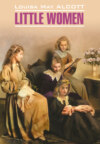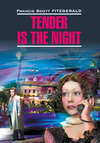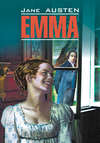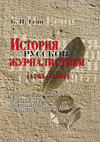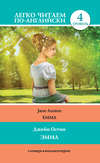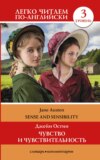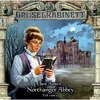Buch lesen: «Northanger Abbey / Нортенгерское аббатство. Книга для чтения на английском языке»
© КАРО, 2013
Об авторе
Замечательная английская писательница Джейн Остин (1775–1817), основоположница «дамского романа» в лучшем его смысле, родилась в семье провинциального священника, который, впрочем, сильно отличался от многих своих коллег – имел ученую степень в Оксфордском университете и в течение некоторого времени был членом ученой корпорации одного из его колледжей. Это был умный, эрудированный человек с широким кругозором. Джордж Остин и его жена Анна, урожденная Ли, принадлежали к старинным дворянским фамилиям. Несмотря на то, что они никогда не кичились своим происхождением, принадлежность семьи к родовитому дворянству обусловила круг знакомств и связей, открывая перед Остинами двери так называемых «лучших» домов графства.
Пробовать перо Джейн начала в возрасте пятнадцати лет. Сначала писала остроумные пародии на современный плохой роман, которые ее близкие называли «проказами Джейн», но тем не менее все они с интересом эти «проказы» слушали.
Свой первый роман Джейн написала в 1796– 1797 годах. Это были «Первые впечатления», увидевшие свет лишь спустя шестнадцать лет под названием «Гордость и предубеждение». Потом были «Разум и чувства», «Эмма», «Мэнсфилд-парк», «Доводы рассудка», «Нортенгерское аббатство».
Личная жизнь писательницы не сложилась, замуж она, в отличие от своих героинь, так и не вышла, хотя получила по крайней мере одно предложение руки и сердца. Умерла она от неизвестной болезни, в муках и молитвах о том, чтобы Бог послал ей и ее близким терпение.
Надо сказать, что современники Остин были не слишком высокого мнения о ее талантах и очень удивились бы, узнав, что произведения писательницы читают и два века спустя. Диккенс не подозревал о существовании Джейн Остин, высказывания о ней Шарлотты Бронте были весьма негативны. Но романы «несравненной Джейн», как назвал ее Вальтер Скотт, пользуются популярностью и в XXI веке, по ним снимаются фильмы и телесериалы с участием знаменитых актеров, и новые поколения читательниц живо интересуются судьбами прелестных барышень и блестящих кавалеров.
* * *
Роман «Нортенгерское аббатство» вышел в свет уже после смерти писательницы, в конце декабря 1817 года, под одной обложкой с другим романом – «Доводы рассудка».
Charter 1
No one who had ever seen Catherine Morland in her infancy would have supposed her born to be an heroine. Her situation in life, the character of her father and mother, her own person and disposition, were all equally against her. Her father was a clergyman, without being neglected, or poor, and a very respectable man, though his name was Richard – and he had never been handsome. He had a considerable independence besides two good livings – and he was not in the least addicted to locking up his daughters. Her mother was a woman of useful plain sense, with a good temper, and, what is more remarkable, with a good constitution. She had three sons before Catherine was born; and instead of dying in bringing the latter into the world, as anybody might expect, she still lived on – lived to have six children more – to see them growing up around her, and to enjoy excellent health herself. A family of ten children will be always called a fine family, where there are heads and arms and legs enough for the number; but the Morlands had little other right to the word, for they were in general very plain, and Catherine, for many years of her life, as plain as any. She had a thin awkward figure, a sallow skin without colour, dark lank hair, and strong features – so much for her person; and not less unpropitious for heroism seemed her mind. She was fond of all boy’s plays, and greatly preferred cricket not merely to dolls, but to the more heroic enjoyments of infancy, nursing a dormouse, feeding a canary-bird, or watering a rosebush. Indeed she had no taste for a garden; and if she gathered flowers at all, it was chiefly for the pleasure of mischief – at least so it was conjectured from her always preferring those which she was forbidden to take. Such were her propensities – her abilities were quite as extraordinary. She never could learn or understand anything before she was taught; and sometimes not even then, for she was often inattentive, and occasionally stupid. Her mother was three months in teaching her only to repeat the “Beggar’s Petition”1; and after all, her next sister, Sally, could say it better than she did. Not that Catherine was always stupid – by no means; she learnt the fable of “The Hare and Many Friends”2 as quickly as any girl in England. Her mother wished her to learn music; and Catherine was sure she should like it, for she was very fond of tinkling the keys of the old forlorn spinnet; so, at eight years old she began. She learnt a year, and could not bear it; and Mrs. Morland, who did not insist on her daughters being accomplished in spite of incapacity or distaste, allowed her to leave off. The day which dismissed the music-master was one of the happiest of Catherine’s life. Her taste for drawing was not superior; though whenever she could obtain the outside of a letter from her mother or seize upon any other odd piece of paper, she did what she could in that way, by drawing houses and trees, hens and chickens, all very much like one another. Writing and accounts she was taught by her father; French by her mother: her profficiency in either was not remarkable, and she shirked her lessons in both whenever she could. What a strange, unaccountable character! – for with all these symptoms of profligacy at ten years old, she had neither a bad heart nor a bad temper, was seldom stubborn, scarcely ever quarrelsome, and very kind to the little ones, with few interruptions of tyranny; she was moreover noisy and wild, hated confinement and cleanliness, and loved nothing so well in the world as rolling down the green slope at the back of the house.
Such was Catherine Morland at ten. At fifteen, appearances were mending; she began to curl her hair and long for balls; her complexion improved, her features were softened by plumpness and colour, her eyes gained more animation, and her figure more consequence. Her love of dirt gave way to an inclination for finery, and she grew clean as she grew smart; she had now the pleasure of sometimes hearing her father and mother remark on her personal improvement. “Catherine grows quite a good-looking girl – she is almost pretty today,” were words which caught her ears now and then; and how welcome were the sounds! To look almost pretty is an acquisition of higher delight to a girl who has been looking plain the first fifteen years of her life than a beauty from her cradle can ever receive.
Mrs. Morland was a very good woman, and wished to see her children everything they ought to be; but her time was so much occupied in lying-in and teaching the little ones, that her elder daughters were inevitably left to shift for themselves; and it was not very wonderful that Catherine, who had by nature nothing heroic about her, should prefer cricket, baseball, riding on horseback, and running about the country at the age of fourteen, to books – or at least books of information – for, provided that nothing like useful knowledge could be gained from them, provided they were all story and no reflection, she had never any objection to books at all. But from fifteen to seventeen she was in training for a heroine; she read all such works as heroines must read to supply their memories with those quotations which are so serviceable and so soothing in the vicissitudes of their eventful lives.
From Pope3, she learnt to censure those who “bear about the mockery of woe.”
From Gray4, that “Many a flower is born to blush unseen,
“And waste its fragrance on the desert air.”
From Thompson5, that —
“It is a delightful task
“To teach the young idea how to shoot.”
And from Shakespeare she gained a great store of information – amongst the rest, that —
“Trifles light as air,
“Are, to the jealous, confirmation strong,
“As proofs of Holy Writ.”6
That
“The poor beetle, which we tread upon,
“In corporal sufferance feels a pang as great
“As when a giant dies.”7
And that a young woman in love always looks —
“like Patience on a monument
“Smiling at Grief.”8
So far her improvement was sufficient – and in many other points she came on exceedingly well; for though she could not write sonnets, she brought herself to read them; and though there seemed no chance of her throwing a whole party into raptures9 by a prelude on the pianoforte, of her own composition, she could listen to other people’s performance with very little fatigue. Her greatest deficiency was in the pencil – she had no notion of drawing – not enough even to attempt a sketch of her lover’s profile, that she might be detected in the design. There she fell miserably short of the true heroic height. At present she did not know her own poverty, for she had no lover to portray. She had reached the age of seventeen, without having seen one amiable youth who could call forth her sensibility, without having inspired one real passion, and without having excited even any admiration but what was very moderate and very transient. This was strange indeed! But strange things may be generally accounted for if their cause be fairly searched out. There was not one lord in the neigh-bourhood; no – not even a baronet. There was not one family among their acquaintance who had reared and supported a boy accidentally found at their door – not one young man whose origin was unknown. Her father had no ward, and the squire of the parish no children.
But when a young lady is to be a heroine, the perverseness of forty surrounding families cannot prevent her. Something must and will happen to throw a hero in her way.
Mr. Allen, who owned the chief of the property about Fullerton, the village in Wiltshire where the Morlands lived, was ordered to Bath10 for the benefit of a gouty constitution – and his lady, a good-humoured woman, fond of Miss Morland, and probably aware that if adventures will not befall a young lady in her own village, she must seek them abroad, invited her to go with them. Mr. and Mrs. Morland were all compliance, and Catherine all happiness.
Charter 2
In addition to what has been already said of Catherine Morland’s personal and mental endowments, when about to be launched into all the difficulties and dangers of a six weeks’ residence in Bath, it may be stated, for the reader’s more certain information, lest the following pages should otherwise fail of giving any idea of what her character is meant to be, that her heart was affectionate; her disposition cheerful and open, without conceit or affectation of any kind – her manners just removed from the awkwardness and shyness of a girl; her person pleasing, and, when in good looks, pretty – and her mind about as ignorant and uninformed as the female mind at seventeen usually is.
When the hour of departure drew near, the maternal anxiety of Mrs. Morland will be naturally supposed to be most severe. A thousand alarming presentiments of evil to her beloved Catherine from this terrific separation must oppress her heart with sadness, and drown her in tears for the last day or two of their being together; and advice of the most important and applicable nature must of course flow from her wise lips in their parting conference in her closet. Cautions against the violence of such noblemen and baronets as delight in forcing young ladies away to some remote farm-house, must, at such a moment, relieve the fulness of her heart. Who would not think so? But Mrs. Morland knew so little of lords and baronets, that she entertained no notion of their general mischievousness11, and was wholly unsuspicious of danger to her daughter from their machinations. Her cautions were confined to the following points. “I beg, Catherine, you will always wrap yourself up very warm about the throat, when you come from the rooms at night; and I wish you would try to keep some account of the money you spend; I will give you this little book on purpose.”
Sally, or rather Sarah (for what young lady of common gentility will reach the age of sixteen without altering her name as far as she can?), must from situation be at this time the intimate friend and confidante of her sister. It is remarkable, however, that she neither insisted on Catherine’s writing by every post, nor exacted her promise of transmitting the character of every new acquaintance, nor a detail of every interesting conversation that Bath might produce. Everything indeed relative to this important journey was done, on the part of the Morlands, with a degree of moderation and composure, which seemed rather consistent with the common feelings of common life, than with the refined susceptibilities, the tender emotions which the first separation of a heroine from her family ought always to excite. Her father, instead of giving her an unlimited order on his banker, or even putting an hundred pounds bank-bill into her hands, gave her only ten guineas, and promised her more when she wanted it.
Under these unpromising auspices, the parting took place, and the journey began. It was performed with suitable quietness and uneventful safety. Neither robbers nor tempests befriended them, nor one lucky overturn to introduce them to the hero. Nothing more alarming occurred than a fear, on Mrs. Allen’s side, of having once left her clogs behind her at an inn, and that fortunately proved to be groundless12.
They arrived at Bath. Catherine was all eager delight – her eyes were here, there, everywhere, as they approached its fine and striking environs, and afterwards drove through those streets which conducted them to the hotel. She was come to be happy, and she felt happy already.
They were soon settled in comfortable lodgings in Pulteney Street.
It is now expedient to give some description of Mrs. Allen, that the reader may be able to judge in what manner her actions will hereafter tend to promote the general distress of the work, and how she will, probably, contribute to reduce poor Catherine to all the desperate wretchedness of which a last volume is capable – whether by her imprudence, vulgarity, or jealousy – whether by intercepting her letters, ruining her character, or turning her out of doors.
Mrs. Allen was one of that numerous class of females, whose society can raise no other emotion than surprise at there being any men in the world who could like them well enough to marry them. She had neither beauty, genius, accomplishment, nor manner. The air of a gentlewoman, a great deal of quiet, inactive good temper, and a trifling turn of mind were all that could account for her being the choice of a sensible, intelligent man like Mr. Allen. In one respect she was admirably fitted to introduce a young lady into public, being as fond of going everywhere and seeing everything herself as any young lady could be. Dress was her passion. She had a most harmless delight in being fine; and our heroine’s entrée13 into life could not take place till after three or four days had been spent in learning what was mostly worn, and her chaperone was provided with a dress of the newest fashion. Catherine too made some purchases herself, and when all these matters were arranged, the important evening came which was to usher her into the Upper Rooms14. Her hair was cut and dressed by the best hand, her clothes put on with care, and both Mrs. Allen and her maid declared she looked quite as she should do. With such encouragement, Catherine hoped at least to pass uncensured through the crowd. As for admiration, it was always very welcome when it came, but she did not depend on it.
Mrs. Allen was so long in dressing that they did not enter the ballroom till late. The season was full15, the room crowded, and the two ladies squeezed in as well as they could. As for Mr. Allen, he repaired directly to the card-room, and left them to enjoy a mob by themselves. With more care for the safety of her new gown than for the comfort of her protégée16, Mrs. Allen made her way through the throng of men by the door, as swiftly as the necessary caution would allow; Catherine, however, kept close at her side, and linked her arm too firmly within her friend’s to be torn asunder by any common effort of a struggling assembly. But to her utter amazement she found that to proceed along the room was by no means the way to disengage themselves from the crowd; it seemed rather to increase as they went on, whereas she had imagined that when once fairly within the door, they should easily find seats and be able to watch the dances with perfect convenience. But this was far from being the case, and though by unwearied diligence they gained even the top of the room, their situation was just the same; they saw nothing of the dancers but the high feathers of some of the ladies. Still they moved on – something better was yet in view; and by a continued exertion of strength and ingenuity they found themselves at last in the passage behind the highest bench. Here there was something less of crowd than below; and hence Miss Morland had a comprehensive view of all the company beneath her, and of all the dangers of her late passage through them. It was a splendid sight, and she began, for the first time that evening, to feel herself at a ball: she longed to dance, but she had not an acquaintance in the room. Mrs. Allen did all that she could do in such a case by saying very placidly, every now and then, “I wish you could dance, my dear – I wish you could get a partner.” For some time her young friend felt obliged to her for these wishes; but they were repeated so often, and proved so totally ineffectual, that Catherine grew tired at last, and would thank her no more.
They were not long able, however, to enjoy the repose of the eminence they had so laboriously gained. Everybody was shortly in motion for tea, and they must squeeze out like the rest. Catherine began to feel something of disappointment – she was tired of being continually pressed against by people, the generality of whose faces possessed nothing to interest, and with all of whom she was so wholly unacquainted that she could not relieve the irksomeness of imprisonment by the exchange of a syllable with any of her fellow captives; and when at last arrived in the tea-room, she felt yet more the awkwardness of having no party to join, no acquaintance to claim, no gentleman to assist them. They saw nothing of Mr. Allen; and after looking about them in vain for a more eligible situation, were obliged to sit down at the end of a table, at which a large party were already placed, without having anything to do there, or anybody to speak to, except each other.
Mrs. Allen congratulated herself, as soon as they were seated, on having preserved her gown from injury. “It would have been very shocking to have it torn,” said she, “would not it? It is such a delicate muslin. For my part I have not seen anything I like so well in the whole room, I assure you.”
“How uncomfortable it is,” whispered Catherine, “not to have a single acquaintance here!”
“Yes, my dear,” replied Mrs. Allen, with perfect serenity, “it is very uncomfortable indeed.”
“What shall we do? The gentlemen and ladies at this table look as if they wondered why we came here – we seem forcing ourselves into their party.”
“Aye, so we do. That is very disagreeable. I wish we had a large acquaintance here.”
“I wish we had any – it would be somebody to go to.”
“Very true, my dear; and if we knew anybody we would join them directly. The Skinners were here last year – I wish they were here now.”
“Had not we better go away as it is? Here are no tea-things for us17, you see.”
“No more there are, indeed. How very provoking! But I think we had better sit still, for one gets so tumbled in such a crowd! How is my head, my dear? Somebody gave me a push that has hurt it, I am afraid.”
“No, indeed, it looks very nice. But, dear Mrs. Allen, are you sure there is nobody you know in all this multitude of people? I think you must know somebody.”
“I don’t, upon my word – I wish I did. I wish I had a large acquaintance here with all my heart, and then I should get you a partner. I should be so glad to have you dance. There goes a strange-looking woman! What an odd gown she has got on! How old-fashioned it is! Look at the back.”
After some time they received an offer of tea from one of their neighbours; it was thankfully accepted, and this introduced a light conversation with the gentleman who offered it, which was the only time that anybody spoke to them during the evening, till they were discovered and joined by Mr. Allen when the dance was over.
“Well, Miss Morland,” said he, directly, “I hope you have had an agreeable ball.”
“Very agreeable indeed,” she replied, vainly endeavouring to hide a great yawn.
“I wish she had been able to dance,” said his wife; “I wish we could have got a partner for her. I have been saying how glad I should be if the Skinners were here this winter instead of last; or if the Parrys had come, as they talked of once, she might have danced with George Parry. I am so sorry she has not had a partner!”
“We shall do better another evening I hope18,” was Mr. Allen’s consolation.
The company began to disperse when the dancing was over – enough to leave space for the remainder to walk about in some comfort; and now was the time for a heroine, who had not yet played a very distinguished part in the events of the evening, to be noticed and admired. Every five minutes, by removing some of the crowd, gave greater openings for her charms. She was now seen by many young men who had not been near her before. Not one, however, started with rapturous wonder on beholding her, no whisper of eager inquiry ran round the room, nor was she once called a divinity by anybody. Yet Catherine was in very good looks19, and had the company only seen her three years before, they would now have thought her exceedingly handsome.
She was looked at, however, and with some admiration; for, in her own hearing, two gentlemen pronounced her to be a pretty girl. Such words had their due effect; she immediately thought the evening pleasanter than she had found it before – her humble vanity was contented – she felt more obliged to the two young men for this simple praise than a true-quality heroine would have been for fifteen sonnets in celebration of her charms, and went to her chair in good humour with everybody, and perfectly satisfied with her share of public attention.
“In corporal sufferance feels a pang as great
“As when a giant dies.” – У. Шекспир. «Мера за меру», III, 1.
“Smiling at Grief.” – У. Шекспир. «Двенадцатая ночь, или Что угодно», II, 4.






